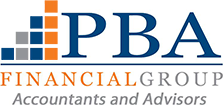Controversial ‘Airbnb tax’ set to become law
A levy on short-stay accommodation bookings will apply from next year after being passed by the Victorian parliament.

.
A 7.5 per cent levy on short-stay accommodation platforms such as Airbnb and Stayz will apply in Victoria from next year after the state parliament passed the controversial legislation last week.
The Australian-first Short Stay Levy Bill 2024 passed with 21 votes to 15 and would begin on 1 January 2025.
It was announced last year as part of the state government’s landmark Housing Statement, which detailed a 10-year plan to improve housing affordability and build 800,000 homes.
The levy was expected to raise between $60-70 million a year for the state’s social housing agency Homes Victoria while pressuring landlords to take properties off the short-term accommodation market amid the state’s rental crisis.
“It is important we recognise and give a signal to the market that our priority is to get people into homes and long-term, secure rental accommodation is important,” Treasurer Tim Pallas said.
Under the new law, liability to pay the 7.5 per cent levy accommodation booking fee would be imposed on the provider of a booking platform.
For direct bookings, the owner or renter would be responsible for paying.
It would be charged on all stays under 28 days in premises in Victoria that were classed as short-term accommodation with exclusions for primary residences, commercial residential premises and specialised housing facilities.
The Victorian Liberal opposition slammed the tax as unfair and pledged to repeal it if it won the 2026 state election.
Opposition leader John Pesutto said: “This tax isn’t about getting more homes built and will only add to growing cost-of-living pressures under Labor.”
“Regional businesses and Victorians simply hoping to enjoy a weekend away shouldn’t be the ones to pay for Labor’s financial mismanagement and a future government I lead will scrap this tax.”
Shadow treasurer Brad Rowswell said the government was penalising holidaymakers during a cost-of-living crisis.
“Labor’s holiday and tourism tax is an unfair tax from a government that cannot manage money and is desperate to fill its budget black hole,” he said.
“Premier Jacinta Allan simply does not understand the cost pressures that Victorians are under at the moment.”
When the levy was announced last year, tax experts also told Accountants Daily that while the impost could make operating short-term rentals more expensive for landlords, it would not necessarily lead to marked increases in the rental market.
Matthew Richardson, a property tax adviser from Cooke & Foley, said the levy might discourage new entrants but existing investors might “outride the downturn”.
“This levy makes the purchase of short-stay accommodation properties less attractive,” he said. “As a result of the levy, the yield received by the property owner is reduced immediately and other costs such as interest rates are not being lowered for the investor to offset the levy.”
“Because this levy is only on short-term accommodation, it's making longer-term rentals seem slightly more appealing … but at the same time, most investors are in it for the longer term. So, they'll outride that downturn.”
Christine Chen
21 October 2024
accountantsdaily.com.au
